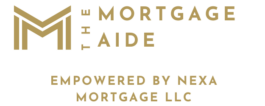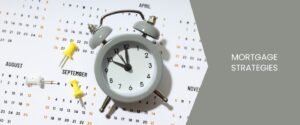The Case for Paying Off Debt First
Paying down debt—especially high-interest credit cards—can help in several key ways:
1. Lower Your Debt-to-Income (DTI) Ratio
Your DTI is a big deal in the mortgage world. Lenders use it to measure how much of your monthly income goes toward debt payments. Lowering your DTI by paying off debt can help you:
Qualify for a larger loan amount
Get better interest rates
Strengthen your overall application
2. Boost Your Credit Score
Reducing your credit utilization (how much you owe vs. your total limits) can quickly raise your credit score, which plays a major role in your loan terms.
3. Free Up Monthly Cash Flow
Less debt = fewer monthly payments. That can make your new mortgage feel more affordable and leave room for homeownership costs like maintenance and utilities.
The Case for Saving for a Down Payment First
On the flip side, building your savings can open more doors—literally.
1. A Larger Down Payment Means Lower Monthly Payments
The more you put down, the less you have to borrow. This means:
Smaller monthly payments
Less interest paid over time
Potential to avoid private mortgage insurance (PMI)
2. You May Not Need to Put 20% Down
Many buyers think they need a huge down payment to buy a home. But with options like FHA (3.5% down) or conventional loans (as low as 3% down for qualified buyers), the barrier to entry might be lower than you think.
3. You’ll Need Some Savings Either Way
Even if you go with a low-down-payment loan, you’ll still need funds for closing costs, inspections, moving, and an emergency cushion for homeownership.
So… Which Comes First?
Here’s a general guide to help you decide where to focus:
| Your Situation | Priority |
|---|---|
| High credit card balances or high DTI | Focus on paying off debt first |
| Low credit utilization and good income | Start saving for your down payment |
| Credit score needs a boost | Pay down debt to improve it |
| Already carrying low debt | Maximize your down payment savings |
| Buying a home in the next 6–12 months | Balance both — aim for minimal debt and solid savings |
Pro Tip: Do Both—Strategically
Sometimes the best path is a balanced approach. For example, if you receive a tax refund or bonus, consider putting a portion toward debt and the rest into your down payment fund. That way, you’re improving your financial health and moving closer to your home-buying goal.
Final Thoughts
Whether you pay off debt or save for a down payment first, the most important thing is to take consistent steps forward. A solid plan, realistic timeline, and professional guidance can help you make the most of your money.
Not sure which path makes more sense for you? I’m here to help you walk through the numbers and come up with a strategy that works for your situation.




